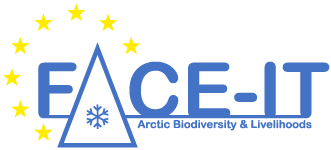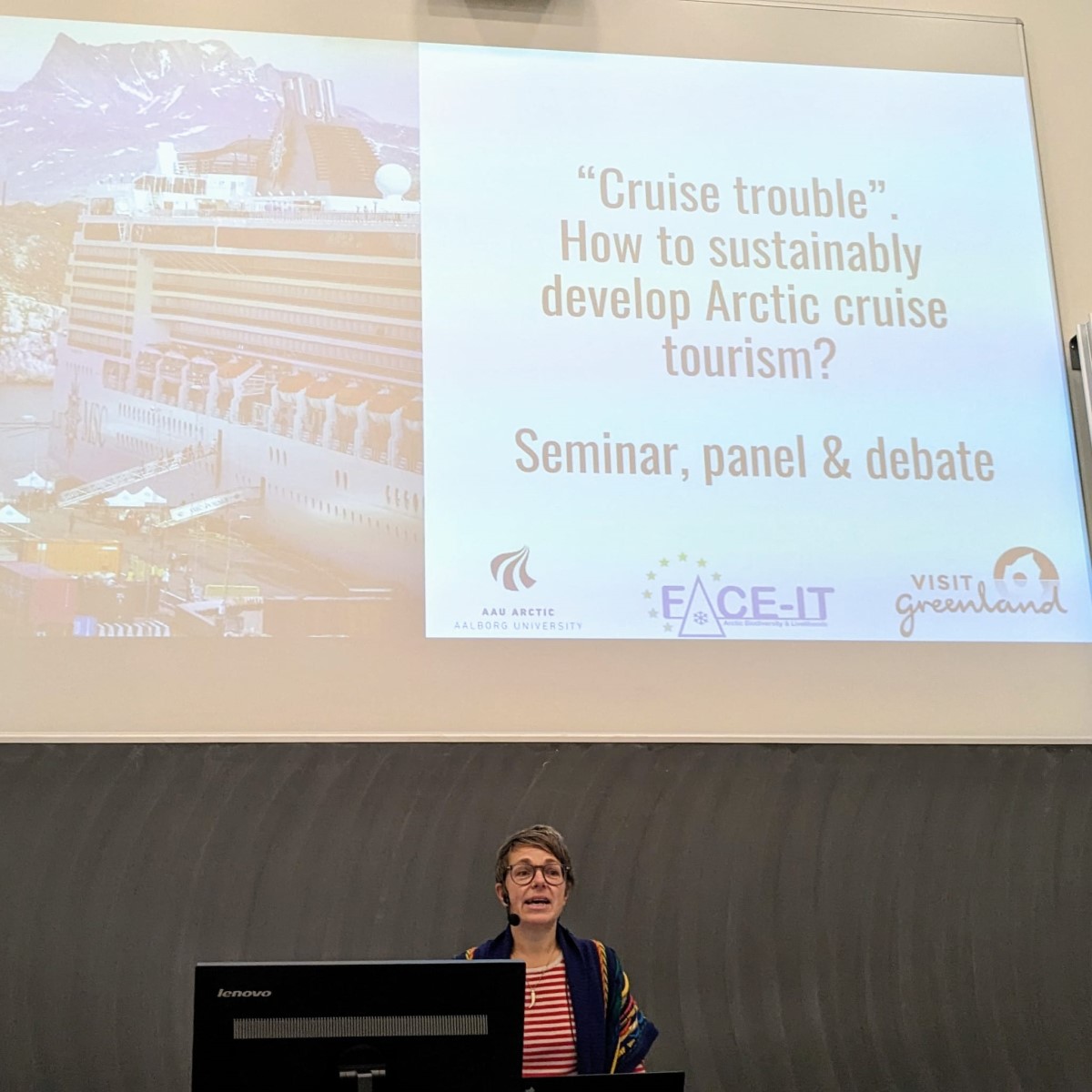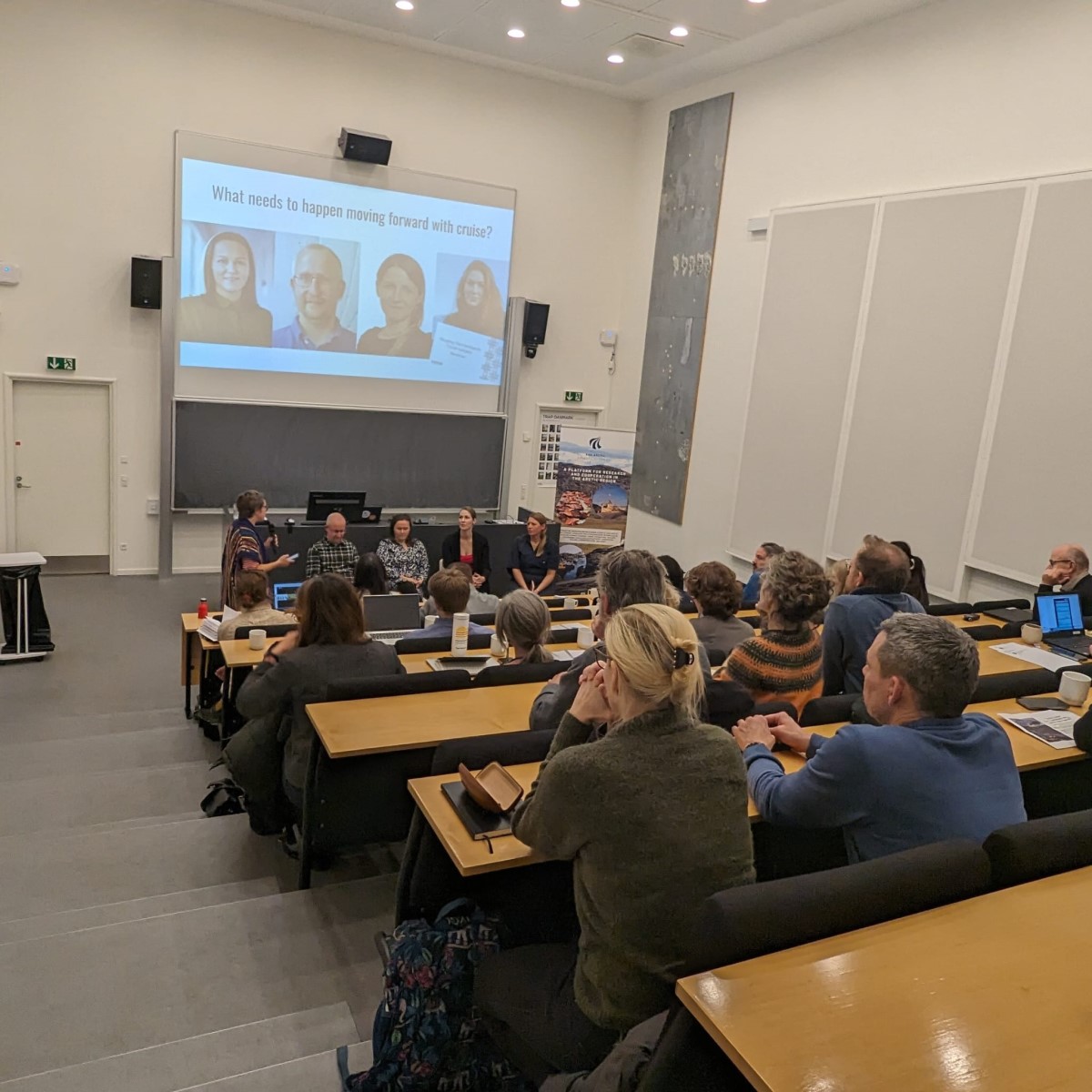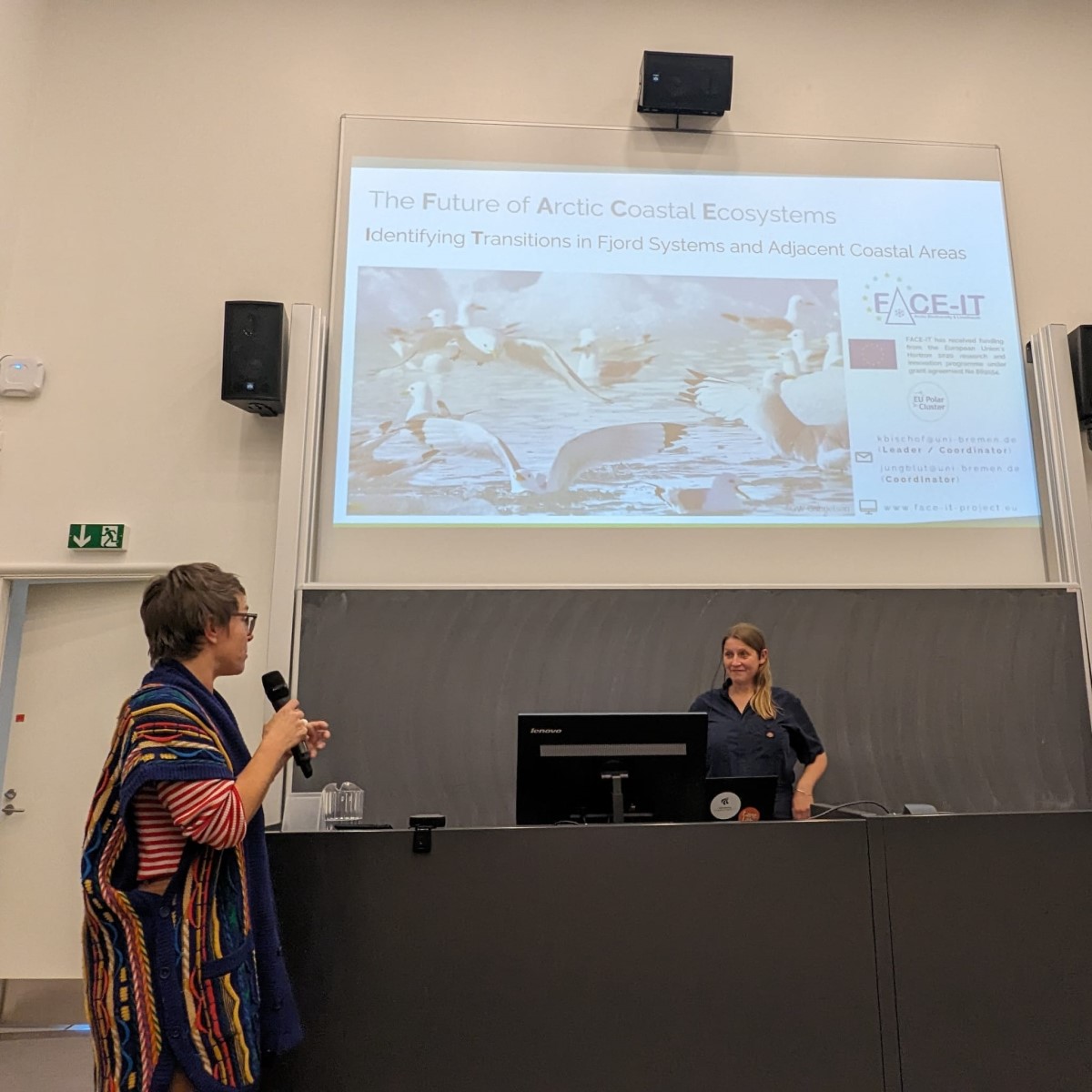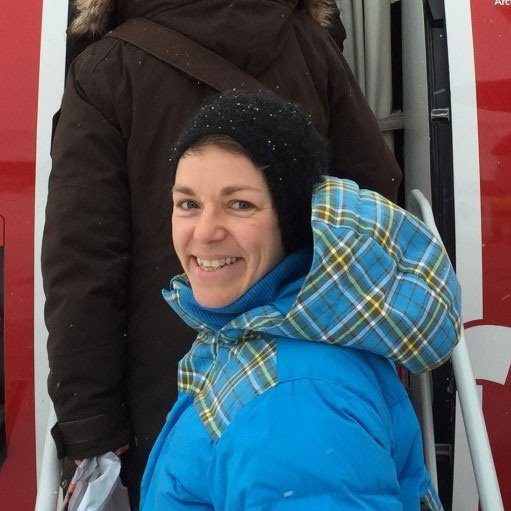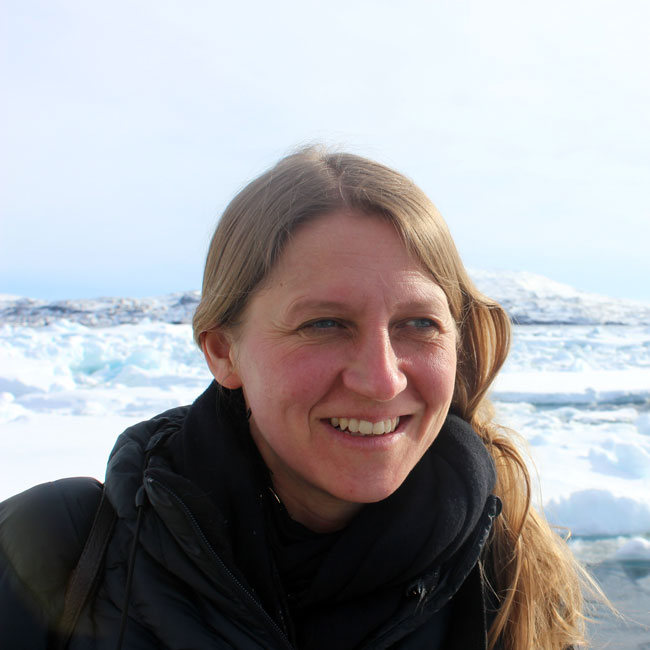Sustainable Arctic cruise tourism workshop co-organized by FACE-IT
[Published 17 November 2023]
Workshops
“How is cruise tourism developing in Greenland and how to secure the balancing of interests and concerns of businesses and communities in a fragile environment?”
This was the topic of a seminar organized by the FACE-IT project together with the Sustainable Arctic Cruise Communities project and hosted by AAU Arctic at Aalborg University and Visit Greenland. The workshop took place on 06 November 2023 in Nuuk in the frame of the Greenland Science Week 2023.
The main organizer of this workshop, Carina Ren (AAU Arctic at Aalborg University), compiled some observations and reflections from the day:
- The lack of environmental regulation and guidelines are of growing concern to tourism actors as cruise tourism booms. This is new in Greenland, where discussions have so far primarily centered on economic and social sustainability. Interesting to see what will happen in this area, especially considering the strict regulations in other Arctic destinations such as Svalbard.
- It is positive that tourism is no longer perceived and addressed as a (primarily economic) ‘silo’ in Greenlandic society. Tourism impacts and is impacted by changes in the environment, society, politics and culture – and should for this reason be included in democratic deliberation to ensure the inclusion of citizens towards a just development of tourism.
- Yes, we need more data and more knowledge. But the thirst for data is becoming less ‘fluffy’ and more directed towards action: Satellite accounts, capacity analysis and more. As stated during the seminar debate, we also need to ‘quantify quality’ to highlight and address the importance of sustained (or ideally improved) quality of life for communities living in fragile environments.
- Will we be seeing ‘turf wars’ in the future? Cruise tourism, hunting and fisheries – Greenland’s largest industry by far – have so far been discussed and addressed separately. But more marine tourism activity mean more pollution and disturbance, also impacting on other economic and societal activities. Regulation is missing to counter that, as also recently pointed out by KNAPK, the association for professional fishermen and hunters in Greenland.
- Many expedition cruise ships want to learn, contribute and improve their operations. This was made clear by the physical and online attendance of AECO Association of Arctic Expedition Cruise Operators and many of its expedition cruise members. But regulations, knowledge, local connections and technology are still lacking to guide the operators and to ensure a balanced development. For this reason, even more adaptive co-management will be demanded in the future.
Program:
13.00-13.05: Welcome and program presentation (Carina Ren, Aalborg University)
13.05-13.20: What is the situation and where are we going with cruise tourism in Greenland? (Helene Lyberth Steffensen, Visit Greenland)
13.20-13.40: Learning within and across Arctic cruise communities: Alta, Lofoten & Nuuk (Hin Heemstra & Julia Olsen, NORD University and Laura James, Aalborg University)
13.40-13.50: Coping with cruise in Ilulissat during and after Covid-19 (Lill Rastad Bjørst, Aalborg University)
13.50-14.00: Ecosystem Based Management of shipping in Greenland (Karl Zinglersen, Greenland Institute of Natural Ressources).
14.00-14.30: Panel debate –what needs to happen moving forward with cruise? Moderator Carina Ren (Aalborg University)
14.20-14.55: Open floor discussion w/ coffee
14.55-15.00: Recap and goodbye
Check out the other involvements of FACE-IT at the Greenland Science Week 2023.
Photos: Nora Diehl (University of Bremen)
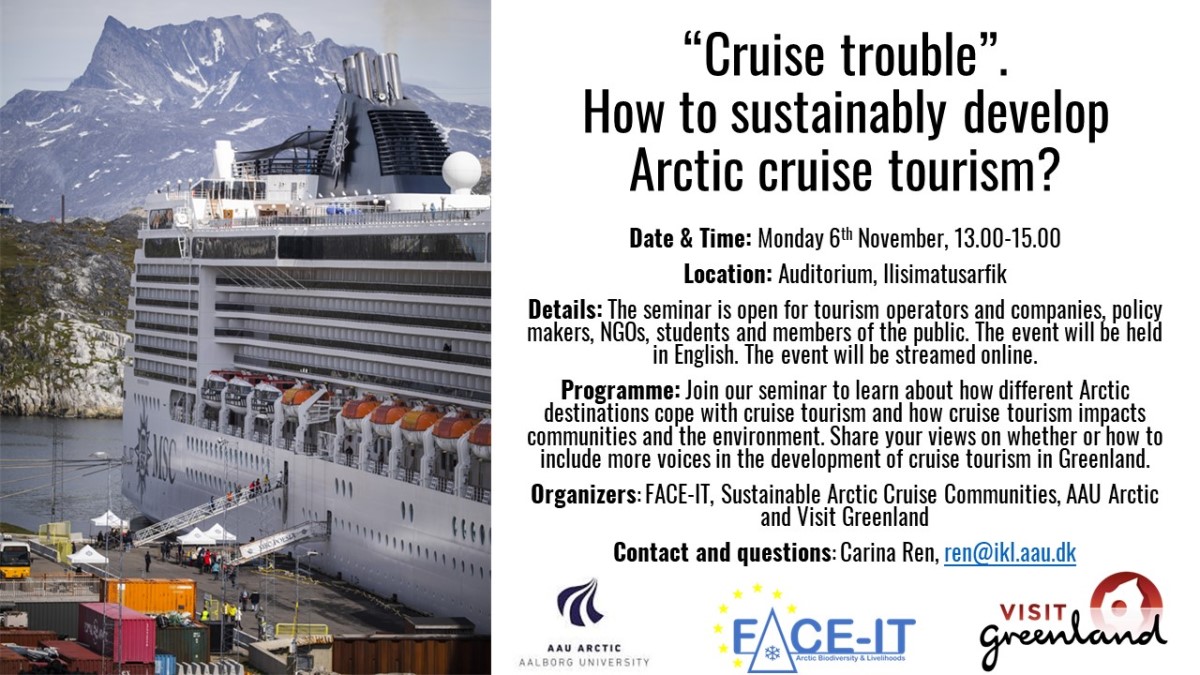
People involved
Carina REN
Role in FACE-IT:
• Researcher "Food Provision and Livelihoods"
• Researcher "Nature-based Tourism"
Aalborg University, Aalborg, Denmark
AAU personal page
Lill RASTAD BJøRST
Role in FACE-IT:
• Member of the Executive Board
• Co-Leader "Food Provision and Livelihoods"
Aalborg University, Copenhagen, Denmark
AAU personal page
Lill’s FACE-IT Projects
